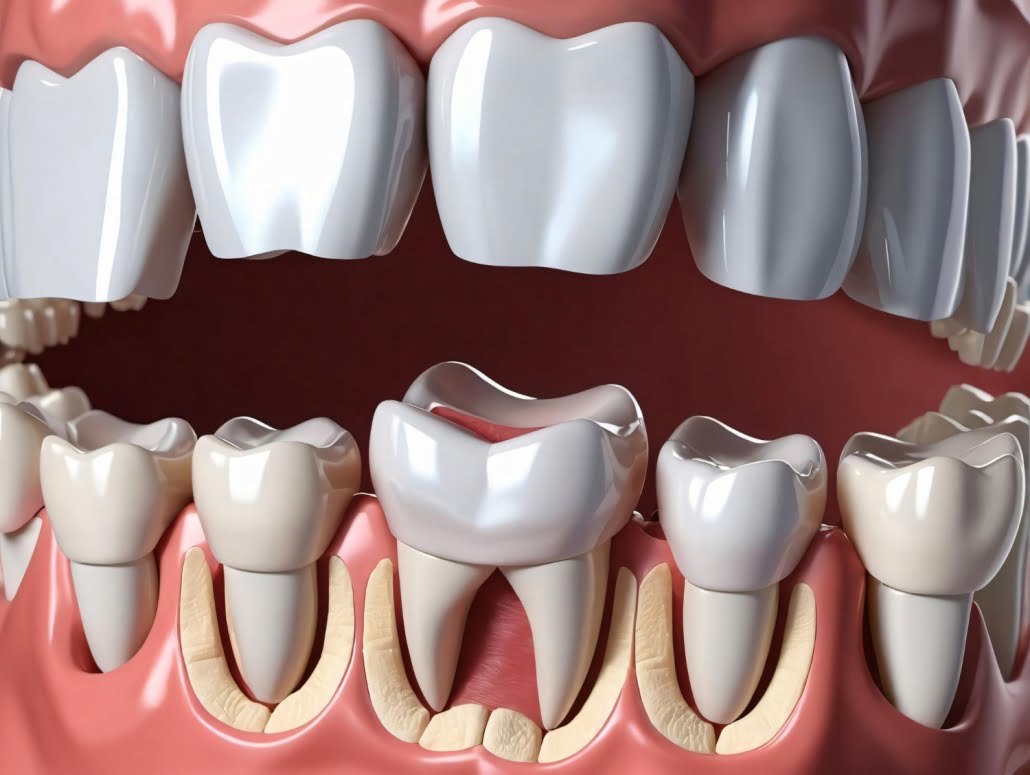Types Of Crowns – Everything You Should Know
Dental crowns, often referred to as caps, are versatile dental restorations used to encase a damaged or weakened tooth, restoring its shape, size, strength, and appearance. They play a crucial role in preserving dental health and enhancing aesthetics. If you’re considering getting a dental crown, it’s essential to understand the different types available, each with its own set of advantages and considerations. Let’s explore the various types of dental crowns to help you make an informed decision.
1. Porcelain Crowns:
Porcelain crowns are a popular choice due to their natural appearance. They can be color-matched to your existing teeth, making them virtually indistinguishable. These crowns are an excellent option for front teeth and areas visible when you smile. While they offer superb aesthetics, they may not be as durable as some other types.
2. Metal Crowns:
Metal crowns, often made of alloys containing gold, palladium, nickel, or chromium, are known for their strength and durability. They are less prone to wear and tear and require less removal of the natural tooth structure during preparation. However, their metallic color makes them more suitable for molars or teeth not visible in the smile.
3. Porcelain-Fused-to-Metal (PFM) Crowns:
PFM crowns combine the strength of metal with the aesthetics of porcelain. They have a metal substructure for stability with an outer layer of porcelain to match the color of adjacent teeth. While they offer a natural appearance and durability, over time, the porcelain layer may wear or chip.
4. All-Ceramic or All-Porcelain Crowns:
These crowns are made entirely of porcelain or dental ceramic materials, providing excellent aesthetics and a high level of biocompatibility. All-ceramic crowns are an ideal choice for those with metal allergies. They offer a natural translucence that matches your natural teeth, making them suitable for front and back teeth.
5. Zirconia Crowns:
Zirconia crowns are known for their exceptional strength, making them a preferred choice for back teeth where chewing forces are higher. They are durable and resist chipping and cracking, offering a long-lasting dental restoration. Additionally, zirconia crowns can be color-matched to blend seamlessly with neighboring teeth.

6. Temporary Crowns:
Temporary crowns are usually made of acrylic or stainless steel and are used as a temporary solution while a permanent crown is being prepared. They help protect the prepared tooth until the final crown is ready for placement.
7. Resin Crowns:
Resin crowns are made of dental resin materials and are generally less expensive than other crown types. They can be a temporary or permanent solution depending on the specific resin used. However, they are more prone to wear and may not last as long as other crown materials.
8. Ceramic Crowns with Layered Zirconia:
These crowns combine the strength of zirconia with the aesthetics of layered porcelain. They are a great choice for both strength and a natural look, making them suitable for various teeth in the mouth.
9. Gold Crowns:
Gold crowns, often made from a gold alloy, are known for their durability, biocompatibility, and ability to withstand heavy biting and chewing forces. They are a suitable choice for molars and back teeth.
10. Temporary Stainless Steel Crowns:
Stainless steel crowns are prefabricated and used as temporary crowns for children, especially for baby teeth that require protection until permanent teeth come in.
Choosing the Right Crown:
The choice of crown depends on various factors, including the tooth’s location, the extent of damage, aesthetic preferences, and your budget. Your dentist will consider these factors and discuss the most suitable option for your specific needs.
- For front teeth: Porcelain, all-ceramic, or porcelain-fused-to-metal crowns offer the best aesthetics.
- For back teeth: Zirconia, metal, or porcelain-fused-to-metal crowns are recommended due to their strength and durability.
- If you have metal allergies: All-ceramic or zirconia crowns are ideal choices.
Conclusion:
Understanding the different types of dental crowns and their benefits is crucial when making an informed decision about your dental health. Consult your dentist to determine the most appropriate crown type based on your unique dental needs, ensuring a restored smile and optimal oral health. Your dentist will guide you in selecting the right crown material that balances both functionality and aesthetics, ultimately enhancing your overall dental well-being.
Remember, regular dental check-ups and maintaining good oral hygiene practices are essential for prolonging the life of your dental crowns and ensuring a healthy, beautiful smile.
This 1000-word blog provides a comprehensive overview of the various types of dental crowns, their advantages, and considerations to help readers make an informed decision about their dental health.



Leave a Reply
Want to join the discussion?Feel free to contribute!